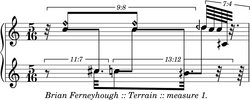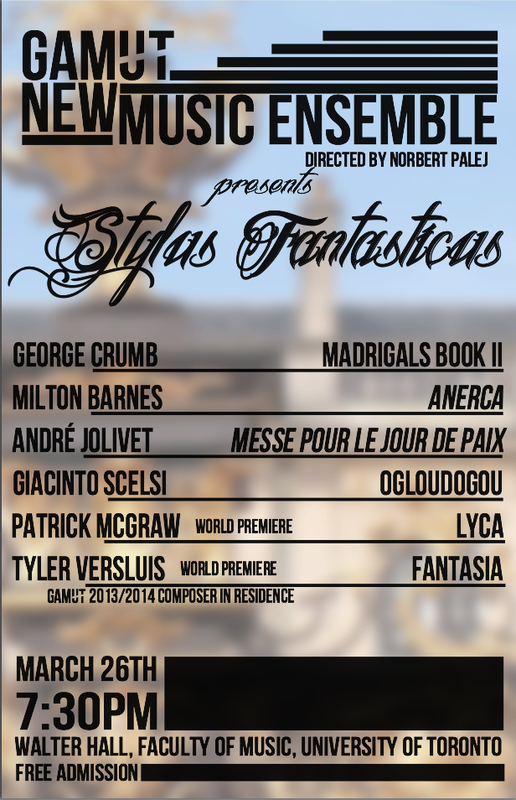|
On March 26th, University of Toronto's gamUT new music ensemble will perform my new piece, Fantasia, in fulfillment of my residency with this group. The concert will also premiere a piece by Toronto composer, Patrick McGraw.
1 Comment
 "Polyphony organizes differences in a deconstructive way; unlike homophony, where voices blend into perceptual unities, polyphony poses the question, ‘does difference function as difference?’ (Mahnkopf, 2002, p. 39). The functioning of difference as difference affects not only the musical material itself but also the manner in which the listener perceives the material. According to Mahnkopf, polyphony forces the listener towards two phenomenological states: positively, the listener enters a state of diagonal listening as a form of ‘mental compromise’, because the ear cannot simultaneously grasp a synchronic layering and diachronic unfolding of such detail and complexity. Negatively, the listener experiences an apperceptive overload where the ear discovers a quality of ‘too-muchness’, an excess of musical relationships that reach sublime proportions. And like the classical sublime, apperceptive overload reveals the limits of the subject’s capacities, a limit which both reasserts the power and domain of both the interiority of subject and the externality of nature, its other.” — Aspect and Ascription in the Music of Mathias Spahlinger, Brian Kane. Published in Contemporary Music Review 27(6): 595-610, ©2008 Taylor & Francis. |
AuthorTyler Versluis is a composer and pianist. Archives
October 2015
Categories |

 RSS Feed
RSS Feed
